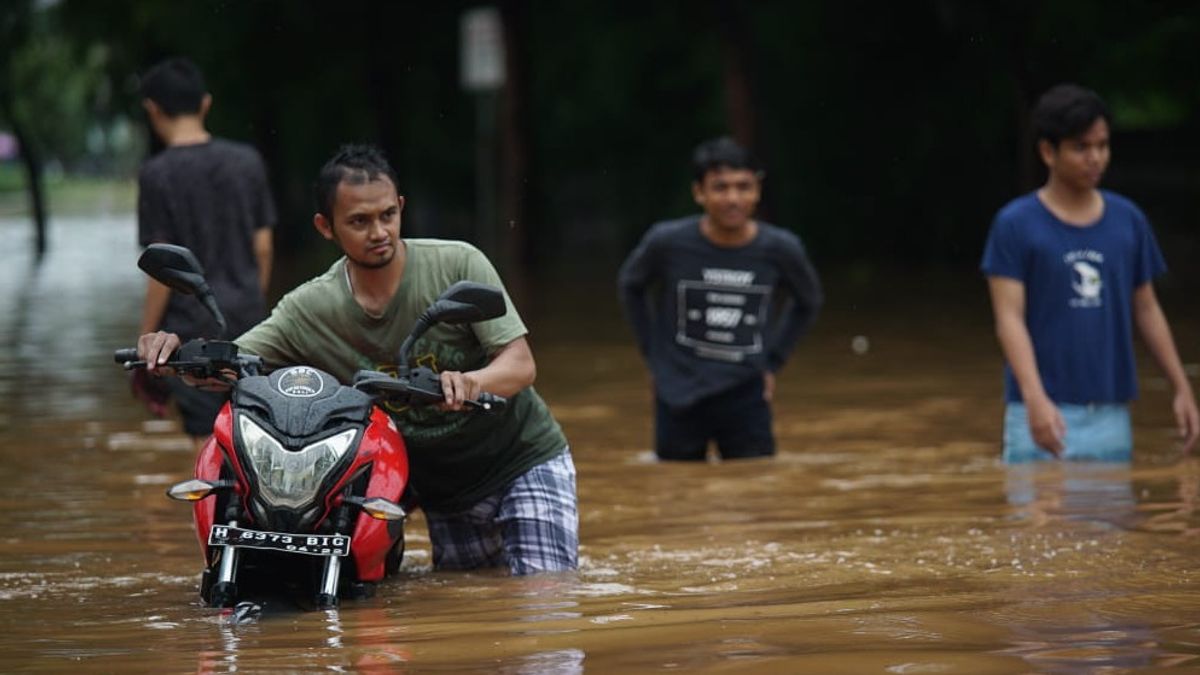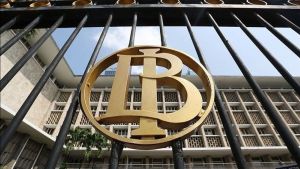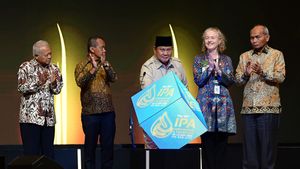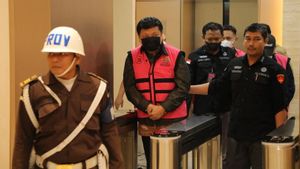JAKARTA - The rain that flushed the Jabodetabek area since Monday, February 24 evening finally resulted in flooding since Tuesday, February 25 morning. Some areas have receded, but there are still some areas that are still submerged.
The impact of the Jabodetabek flood in early January 2020 was not finished yet, now people must "enjoy" the impact of today's floods. One of them is the impact from the economic side of several sectors that have become routine in Jabodetabek society.
Institute for Development of Economics and Finance (INDEF) economist Bhima Yudhistira said there were several economic sectors that were affected by today's floods. The first is the retail sector, which has been hit hard by declining visits to shopping centers and restaurants.
"Some malls even had power cuts until this afternoon, so visitors were uncomfortable. Access to shopping centers was also disrupted," Bhima told VOI, Tuesday, February 25.
The second, said Bhima, is in the distribution sector of the manufacturing industry in industrial areas. According to him, the delivery of goods is late, both raw materials and finished products.
"It should have been sent according to schedule so it was delayed. Factory operations have stopped, office offices are closed. There are additional costs that will be borne by businesses," said Bhima.
He added that the tourism sector was also affected, where hotels and restaurants had less visitors. The corona virus outbreak has had a severe impact on tourism, plus the flood is even more serious.
Not to mention, in the food sector, food prices can soar, because the flow of food distribution is hampered, because extreme weather reduces food production.
"Yesterday, the price of garlic had penetrated Rp. 60-70 thousand per kilogram in DKI Jakarta. Floods have worsened the inflation outlook," Bhima explained.
This morning, based on police records, Tuesday, February 25, there were 42 flood spots throughout the Jakarta area. The most flooded areas are in North Jakarta.
The central government, through the Center for the Ciliwung Cisadane River Basin (BBWSCC), has not been able to determine many steps to anticipate future flooding.
This is because the Ciliwung river normalization project has not run optimally because DKI Jakarta Governor Anies Baswedan is still constrained by land acquisition problems in Bidara Cina.
BBWSCC has and will carry out several works in flood management in Jakarta and its surroundings. However, this step is not optimal, because this morning a number of areas in Jakarta are still inundated with water.
First, BBWSCC dredges Lake Kemayoran, Central Jakarta. Then, BBWSCC will build a water pump at Kali Sentiong which is planned to be carried out in March. Then, continue the construction of embankments on the coast of Jakarta with the target of 45 kilometers while only 9 kilometers.
The central government is still waiting for the DKI Jakarta Provincial Government to complete the acquisition of Bidara Cina land to be normalized immediately. This is because, of the total target length of 33 kilometers of the river, the normalization process that has been carried out is only 16 kilometers.
"We are still waiting for the determination of the location of the land to be released from the Governor of DKI. If it is resolved, the volume of 60 cubic meters of the Ciliwung flood can be channeled to the East Flood Canal," said the Head of BBWSCC Bambang Hidayah.
The English, Chinese, Japanese, Arabic, and French versions are automatically generated by the AI. So there may still be inaccuracies in translating, please always see Indonesian as our main language. (system supported by DigitalSiber.id)













